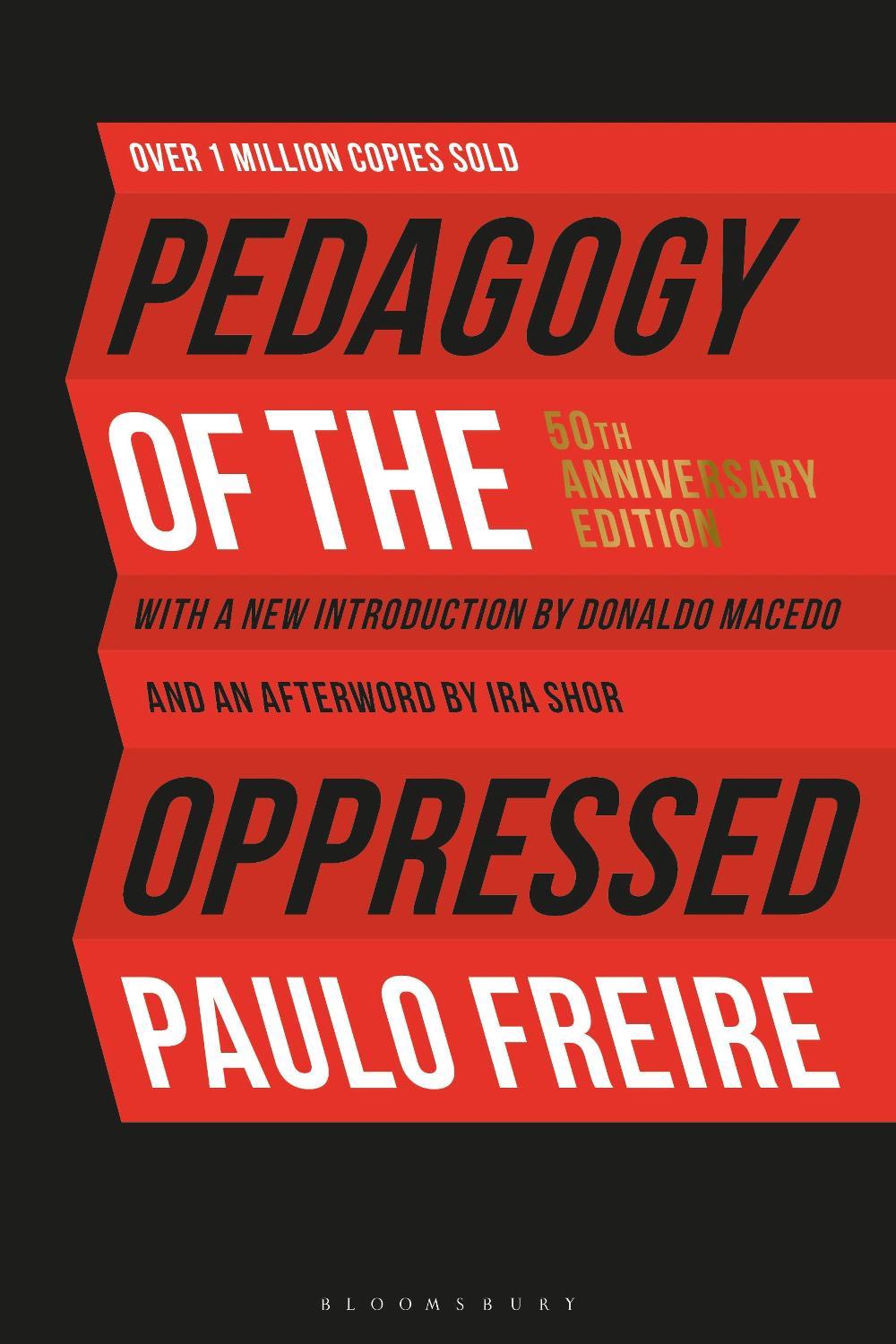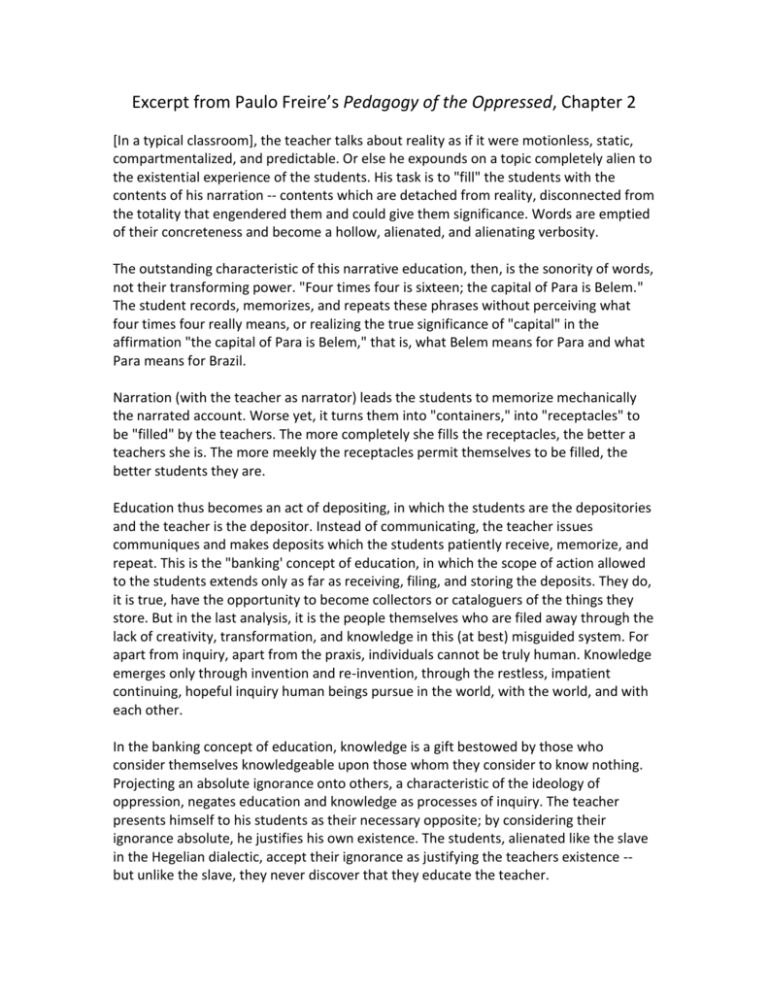

It’s within this context that Freire writes Pedagogy of the Oppressed: exiled from his native country as it experienced an anti-communist regime change, Freire’s ground-up approach to education critiques the rise of authoritarianism and right-wing policies in Latin America at that time. Brazil’s coup, in particular, impacted Freire’s perspective in his writings: military leaders ousted left-leaning president João Goulart in 1964 and began to purge the government of programs and people deemed too radical (including Freire and his literacy efforts). Military coups occurred in Bolivia, Brazil, Argentina, and other South American countries in the 1960s and 1970s, sometimes backed by the United States, and the new authoritarian governments in these countries were often explicitly opposed to communist ideas. He died in 1997.ĭuring the Cold War, Latin America experienced great political upheaval, as the competing interests of the capitalist United States and the communist Soviet Union fractured the globe.

He continued his educational practice late in life, and was eventually appointed Secretary of Education in Sao Paolo.

After more than a decade in exile, Freire returned to Brazil in 1980 and joined the Worker’s Party. Both books were well received in the academic community, and Freire spent much of the late 1960s and 1970s as a Harvard lecturer and a consultant for the United Nations. After a short stay in Bolivia, he worked in Chile for five years, where he published Education as the Practice of Freedom (1967) and Pedagogy of the Oppressed (1968). Friere was imprisoned for more than two months as a traitor and exiled soon after. In 1964, Brazil’s president was ousted in a coup d’état and replaced by a military government, which found Freire’s programs too subversive. These programs often experimented with their methods, and they saw success in raising Brazil’s literacy rates. Freire spent much of the 1950s and 60s implementing literacy programs for poor people in Brazil, often with the support of the Brazilian government, and this work directly informs Freire’s writings. In 1944 he married Elza Oliveira, a primary school teacher who encouraged him to develop his theories on education, and the two had five children together. After studying law, he began his career teaching Portuguese in secondary schools.

Born in 1921, Freire grew up in the northeast of Brazil, where he often came in contact with the poverty that plagued Latin America during the Great Depression. Paulo Freire was an educator and theorist whose work is important to the field of education studies.


 0 kommentar(er)
0 kommentar(er)
